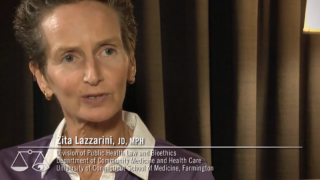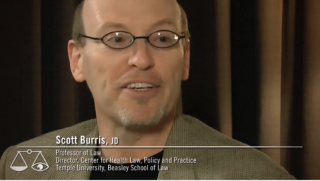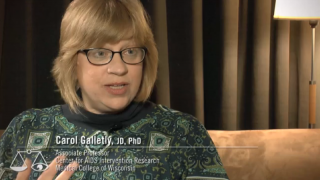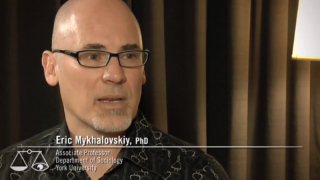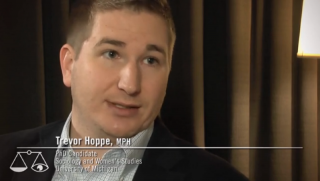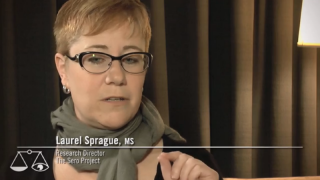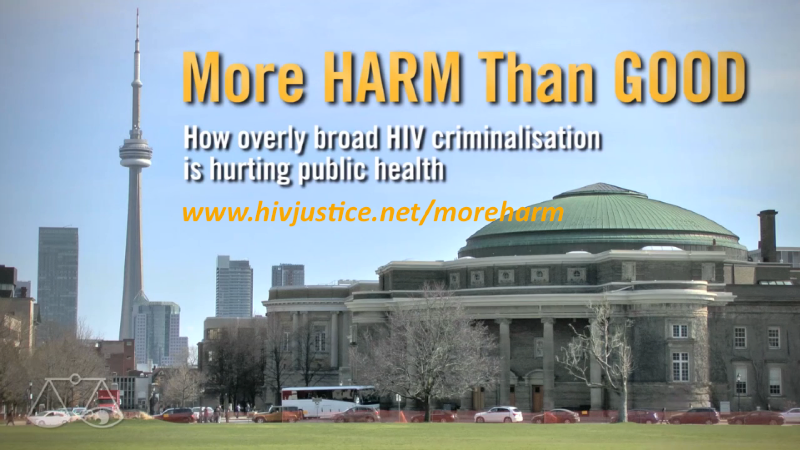In recent years, the criminalization of HIV transmission, exposure and non-disclosure has become a hot topic among those working within the global AIDS milieu. Social scientists have become increasingly attentive to the complex and varied consequences and impacts of HIV criminalization.
Experts agree: overly broad HIV criminalisation is doing more harm than good
The HIV Justice Network has today released a new documentary, More HARM Than GOOD: How overly broad HIV criminalisation is hurting public health which had its world premiere at the US Conference on AIDS in New Orleans on September 10th. We hope it will be useful for both education and advocacy. To watch the video and to see all the studies cited in the documentary, visit www.hivjustice.net/moreharm. Download the video from our Vimeo channel: www.vimeo.com/hivjustice/moreharm
In many countries around the world, people with HIV are being made criminally liable for HIV prevention.
Despite strong recommendations against this overly broad use of the criminal law by UNAIDS and the Global Commission on HIV and the Law, the latest report from the Global Network of People Living with HIV and the HIV Justice Network highlights that new laws continue to be proposed and enacted, and more prosecutions are taking place than ever before.
The most commonly cited rationale of the criminal law is to deter morally unacceptable behaviour through fear of punishment. Scott Burris and Zita Lazzarini were the first to explore whether US laws that criminalised HIV non-disclosure had the impact that the lawmakers intended.
Zita Lazzarini: We found that whether you lived in a state with a law or without a law had absolutely no effect.
Scott Burris: Criminal law is generally a very blunt tool, anyway. And if you think about it, punishment and fear rarely brings out the best in people, when they’re making individual behaviour decisions. And certainly, when it comes to sex, criminal law has a very limited record of getting people to change their behaviour.
Carol Galletly has added much to the body of evidence on the impact of laws that criminalise HIV non-disclosure. Working with a number of colleagues, she published a number of studies, including this one in 2006 and this one in 2012 examining whether or not these laws are having the impact they were intended to have.
Carol Galletly: We thought of every single way these laws could possibly be effective. Do HIV-positive individuals reduce number of sex partners? Do they choose only positive sex partners more than people who don’t know about the law? Are they abstinent more? Do they practice safer sex more? Do they engage in oral sex or less risky activities? So we looked at all these things and the data just stacked up – there were no significant differences. The strongest predictor of disclosure was actually comfort with disclosure. So what I concluded was, if you really want people to disclose, then what you should probably do is increase their comfort, do interventions, do whatever. And don’t do laws that could jeopardize people disclosing.
Most laws and prosecutions focus on disclosure – in other words, whether or not the person with diagnosed HIV told their sexual partner before having sex. Whilst this may be the right thing to do, does this actually benefit HIV prevention? Eric Mykhalovskiy organised an international meeting on HIV prevention and criminal law in Toronto in April 2013 precisely because his own research found that criminalising HIV non-disclosure was having the opposite effect of what was intended.
Eric Mykhalovskiy: We see how significant now disclosure, or questions around disclosure, are within HIV prevention counselling, to the point that there is too much of a focus. You know, Barry Adam and others have emphasised repeatedly that disclosure is not an effective HIV prevention mechanism. And yet what seems to have happened is that the criminalisation of HIV non-disclosure has placed disclosure at the centre of people’s concerns around HIV prevention. And that is, I think, a serious challenge for people who are enlisted with the responsibility of trying to ensure that HIV transmission is lessened.
Barry Adam is Senior Scientist and Director of Prevention Research at the Ontario HIV Treatment Network and lead author of How criminalization is affecting people living with HIV in Ontario.
Barry Adam: Disclosure has become a bit of a red herring I think, in terms of HIV prevention because HIV prevention can and has for a long time happened without disclosure, anyways. To require disclosure doesn’t necessarily help. Sometimes, it could even hinder the process by creating a false sense of security among those who think that, if disclosure doesn’t happen, that their partner is negative. The social science evidence shows that, when people often get into the disclosure area, it’s in order to give themselves permission to have unprotected sex! People actually do have to know what their HIV status is in order to disclose it. And, there is a good deal of science these days that suggests that, it’s people who don’t know, who are newly infected, who are actually doing a lot of the infection.
Studies by Eric Mykhalovskiy, Chris Sanders and Martin French (the latter two are currently undertaking research studies and have not yet published their findings) have uncovered an unanticipated negative impact of HIV criminalisation on the healthcare workers who test and treat people with HIV, complicating their practice as public health professionals. They found that the criminal law is creating a chill, closing down discussions about HIV on both sides. (An in-depth report on the impact of HIV criminalisation on nursing practice can be found here.)
Chris Sanders: Criminalisation has complicated post-test counseling. Nurses are finding that clients shut down, they become very unwilling to speak openly about their sexual behaviour and they don’t want to share contact information because they’re worried that it might come back if they’re later charged with non-disclosure. And so, it makes nurses’ work more difficult. And that can impact HIV prevention as public health relies on contact tracing to be able to do quite a bit of their prevention work.
Martin French: I’m looking at this in Canada and the United States, and in spite of the fact that there are different approaches to public health I’m seeing some similar effects in terms of the anxiety that a number of providers are feeling about the issue of criminalisation as they counsel patients with respect to disclosure.
Trevor Hoppe found another, more sinister impact on healthcare workers. During his PhD research he discovered that some heath officials in Michigan’s public health system appeared to be invested in prosecuting people with HIV for not disclosing their status, resulting in some potentially problematic outcomes for HIV prevention.
Trevor Hoppe: This is the first piece of evidence that some health departments may be playing a role in facilitating criminal prosecutions. I can understand why people living in some of these communities would think twice before talking to health officials about their lives openly and honestly, given what health officials reported to me.
One of the most worrying aspects of HIV criminalisation is the additional disincentive it plays in a person’s willingness to take an HIV test: a significant number of new infections come from people who are undiagnosed. But testing is not just about knowing one’s HIV status to modify behaviour, it’s also the gateway to accessing HIV treatment and care.
New guidelines from the World Health Organization now highlight that HIV treatment works not only to keep people alive and well for a lifetime, but also prevents new infections by reducing HIV to undetectable levels. Where there is no virus, there can be no transmission. Since treatment is also prevention, then not testing or accessing treatment, hurts not only the individual but also the communities in which they live, harming the broader public health.
Laurel Sprague is the Research Director of the Sero Project, and oversaw their 2012 national HIV criminalisation survey.
Laurel Sprague: We asked people whether they thought it was not reasonable, somewhat reasonable or very reasonable to avoid getting an HIV test, or to avoid accessing treatment if someone tested positive because of HIV criminalisation. Those numbers should be zero. We shouldn’t have legal reasons for people not to get tested. We shouldn’t have a legal reason for people not to access care. And half of our respondents said that it was reasonable to avoid HIV testing because of HIV criminalisation and 42% of our respondents said it was reasonable, somewhat, or very reasonable to avoid getting HIV care once you’ve tested positive.
Patrick O’ Byrne is lead author of the 2013 review article, HIV criminal prosecutions and public health: an examination of the empirical research. He has also studied the impact of HIV prosecutions on gay men and documented how fear of HIV criminalisation has impacted their sexual and testing practices.
Patrick O’Byrne: Nobody – guys who were negative, guys who were positive – could make a distinction between the public health department and the police. It was a single institution. And this is problematic, right? How can you provide health care services when people think that you are a police agency? How do you provide care when people won’t access it? The laws have effectively rendered your HIV prevention health professionals useless.
Richard Elliott is the Executive Director of the Canadian HIV/AIDS Legal Network, and was an intervenor when the Supreme Court of Canada heard HIV criminalisation cases in 1998 and 2012.
Richard Elliott: How can it not have an impact on people and their decision as to whether or not to find out their HIV status, if you risk becoming a criminal. It may not at the end of the day dissuade a large number of people, but I think, it does dissuade a significant number of people and it probably, based on the evidence we have, dissuades some of those who are most likely to actually benefit from learning their HIV status, and all of the potential benefits to them, and others that may flow from that. So, why would we want to create an additional barrier, and why would we want to create a barrier to people actually seeking help from the helping professions? Because if we conscript those helping professions, to basically, become agents of law enforcement, that undermines their ability to help people, and that actually undermines the health of all of us.
Criminalisation is a divisive issue with strong opinions often informed by morality and a desire to achieve justice by punishing perceived wrongdoing. However, understanding the impact of HIV criminalisation on public health is critical to making informed policy decisions.
The 2013 UNAIDS guidance note, Ending overly-broad criminalisation of HIV non-disclosure, exposure and transmission: Critical scientific, medical and legal considerations aims to ensure that any application of criminal law in the context of HIV achieves justice and does not jeopardise public health objectives.
The guidance can be downloaded here.
More HARM Than GOOD [Trailer] (HJN, 2013)
Feature: Why overly broad HIV criminalisation is doing more harm than good
In many countries around the world, people with HIV are being made criminally liable for HIV prevention.
Despite strong recommendations against this overly broad use of the criminal law by UNAIDS and the Global Commission on HIV and the Law, the latest report from the Global Network of People Living with HIV and the HIV Justice Network highlights that new laws continue to be proposed and enacted, and more prosecutions are taking place than ever before.
The most commonly cited rationale of the criminal law is to deter morally unacceptable behaviour through fear of punishment. Scott Burris and Zita Lazzarini were the first to explore whether US laws that criminalised HIV non-disclosure had the impact that the lawmakers intended.
Zita Lazzarini: We found that whether you lived in a state with a law or without a law had absolutely no effect.
Scott Burris: Criminal law is generally a very blunt tool, anyway. And if you think about it, punishment and fear rarely brings out the best in people, when they’re making individual behaviour decisions. And certainly, when it comes to sex, criminal law has a very limited record of getting people to change their behaviour.
Carol Galletly has added much to the body of evidence on the impact of laws that criminalise HIV non-disclosure. Working with a number of colleagues, she published a number of studies, including this one in 2006 and this one in 2012 examining whether or not these laws are having the impact they were intended to have.
Carol Galletly: We thought of every single way these laws could possibly be effective. Do HIV-positive individuals reduce number of sex partners? Do they choose only positive sex partners more than people who don’t know about the law? Are they abstinent more? Do they practice safer sex more? Do they engage in oral sex or less risky activities? So we looked at all these things and the data just stacked up – there were no significant differences. The strongest predictor of disclosure was actually comfort with disclosure. So what I concluded was, if you really want people to disclose, then what you should probably do is increase their comfort, do interventions, do whatever. And don’t do laws that could jeopardize people disclosing.
Most laws and prosecutions focus on disclosure – in other words, whether or not the person with diagnosed HIV told their sexual partner before having sex. Whilst this may be the right thing to do, does this actually benefit HIV prevention? Eric Mykhalovskiy organised the workshop precisely because his own research found that criminalising non-disclosure was having the opposite effect of what was intended.
Eric Mykhalovskiy: We see how significant now disclosure, or questions around disclosure, are within HIV prevention counselling, to the point that there is too much of a focus. You know, Barry Adam and others have emphasised repeatedly that disclosure is not an effective HIV prevention mechanism. And yet what seems to have happened is that the criminalisation of HIV non-disclosure has placed disclosure at the centre of people’s concerns around HIV prevention. And that is, I think, a serious challenge for people who are enlisted with the responsibility of trying to ensure that HIV transmission is lessened.
Barry Adam is Senior Scientist and Director of Prevention Research at the Ontario HIV Treatment Network and lead author of How criminalization is affecting people living with HIV in Ontario.
Barry Adam: Disclosure has become a bit of a red herring I think, in terms of HIV prevention because HIV prevention can and has for a long time happened without disclosure, anyways. To require disclosure doesn’t necessarily help. Sometimes, it could even hinder the process by creating a false sense of security among those who think that, if disclosure doesn’t happen, that their partner is negative. The social science evidence shows that, when people often get into the disclosure area, it’s in order to give themselves permission to have unprotected sex! People actually do have to know what their HIV status is in order to disclose it. And, there is a good deal of science these days that suggests that, it’s people who don’t know, who are newly infected, who are actually doing a lot of the infection.
Studies by Eric Mykhalovskiy, Chris Sanders and Martin French (the latter two are currently undertaking research studies and have not yet published their findings) have uncovered an unanticipated negative impact of HIV criminalisation on the healthcare workers who test and treat people with HIV, complicating their practice as public health professionals. They found that the criminal law is creating a chill, closing down discussions about HIV on both sides. (An in-depth report on the impact of HIV criminalisation on nursing practice can be found here.)
Chris Sanders: Criminalisation has complicated post-test counseling. Nurses are finding that clients shut down, they become very unwilling to speak openly about their sexual behaviour and they don’t want to share contact information because they’re worried that it might come back if they’re later charged with non-disclosure. And so, it makes nurses’ work more difficult. And that can impact HIV prevention as public health relies on contact tracing to be able to do quite a bit of their prevention work.
Martin French: I’m looking at this in Canada and the United States, and in spite of the fact that there are different approaches to public health I’m seeing some similar effects in terms of the anxiety that a number of providers are feeling about the issue of criminalisation as they counsel patients with respect to disclosure.
Trevor Hoppe found another, more sinister impact on healthcare workers. During his PhD research he discovered that some heath officials in Michigan’s public health system appeared to be invested in prosecuting people with HIV for not disclosing their status, resulting in some potentially problematic outcomes for HIV prevention.
Trevor Hoppe: This is the first piece of evidence that some health departments may be playing a role in facilitating criminal prosecutions. I can understand why people living in some of these communities would think twice before talking to health officials about their lives openly and honestly, given what health officials reported to me.
One of the most worrying aspects of HIV criminalisation is the additional disincentive it plays in a person’s willingness to take an HIV test: a significant number of new infections come from people who are undiagnosed. But testing is not just about knowing one’s HIV status to modify behaviour, it’s also the gateway to accessing HIV treatment and care.
New guidelines from the World Health Organization now highlight that HIV treatment works not only to keep people alive and well for a lifetime, but also prevents new infections by reducing HIV to undetectable levels. Where there is no virus, there can be no transmission. Since treatment is also prevention, then not testing or accessing treatment, hurts not only the individual but also the communities in which they live, harming the broader public health.
Laurel Sprague is the Research Director of the Sero Project, and oversaw their 2012 national HIV criminalisation survey.
Laurel Sprague: We asked people whether they thought it was not reasonable, somewhat reasonable or very reasonable to avoid getting an HIV test, or to avoid accessing treatment if someone tested positive because of HIV criminalisation. Those numbers should be zero. We shouldn’t have legal reasons for people not to get tested. We shouldn’t have a legal reason for people not to access care. And half of our respondents said that it was reasonable to avoid HIV testing because of HIV criminalisation and 42% of our respondents said it was reasonable, somewhat, or very reasonable to avoid getting HIV care once you’ve tested positive.
Patrick O’ Byrne is lead author of the 2013 review article, HIV criminal prosecutions and public health: an examination of the empirical research. He has also studied the impact of HIV prosecutions on gay men and documented how fear of HIV criminalisation has impacted their sexual and testing practices.
Patrick O’Byrne: Nobody – guys who were negative, guys who were positive – could make a distinction between the public health department and the police. It was a single institution. And this is problematic, right? How can you provide health care services when people think that you are a police agency? How do you provide care when people won’t access it? The laws have effectively rendered your HIV prevention health professionals useless.
Richard Elliott is the Executive Director of the Canadian HIV/AIDS Legal Network, and was an intervenor when the Supreme Court of Canada heard HIV criminalisation cases in 1998 and 2012.
Richard Elliott: How can it not have an impact on people and their decision as to whether or not to find out their HIV status, if you risk becoming a criminal. It may not at the end of the day dissuade a large number of people, but I think, it does dissuade a significant number of people and it probably, based on the evidence we have, dissuades some of those who are most likely to actually benefit from learning their HIV status, and all of the potential benefits to them, and others that may flow from that. So, why would we want to create an additional barrier, and why would we want to create a barrier to people actually seeking help from the helping professions? Because if we conscript those helping professions, to basically, become agents of law enforcement, that undermines their ability to help people, and that actually undermines the health of all of us.
Criminalisation is a divisive issue with strong opinions often informed by morality and a desire to achieve justice by punishing perceived wrongdoing. However, understanding the impact of HIV criminalisation on public health is critical to making informed policy decisions.
The 2013 UNAIDS guidance note, Ending overly-broad criminalisation of HIV non-disclosure, exposure and transmission: Critical scientific, medical and legal considerations aims to ensure that any application of criminal law in the context of HIV achieves justice and does not jeopardise public health objectives.
The guidance can be downloaded here.
The HIV Justice Network has produced an accompanying video, ‘More HARM Than GOOD’ that we hope will be useful for both education and advocacy. Watch and/or download the video on our Vimeo channel: www.vimeo.com/hivjustice/moreharm
More HARM Than GOOD
How overly broad HIV criminalisation is hurting public health
(29 min, HJN, Canada, 2013)
This educational and advocacy video from the HIV Justice Network, filmed at an international meeting on HIV prevention and criminal law in Toronto in April 2013, features interviews with social scientistis, researchers and legal and public health experts from the U.S. and Canada who have studied the public health impact of HIV criminalisation.
Featuring Barry Adam, Scott Burris, Richard Elliott, Martin French, Carol Galletly, Trevor Hoppe, Zita Lazzarini, Eric Mykhalovskiy, Patrick O’Byrne, Chris Sanders and Laurel Sprague
- Written and presented by Edwin J Bernard
- Filmed, directed and produced by Nicholas Feustel
- Further information at: hivjustice.net/moreharm
- Produced by: georgetownmedia.de
Southern African leaders warned that mandatory HIV testing is both a violation of human rights and a hinderance to public health
Windhoek, 22 August 2013 – The AIDS and Rights Alliance for Southern Africa (ARASA), a partnership of 73 non-governmental organizations working in southern and east Africa, has noted with concern reports that several SADC leaders lauded mandatory HIV testing as a viable strategy to curb the spread of HIV during a meeting of Heads of State and Government on AIDS Watch Africa, held on 17 August on the sidelines of the 33rd SADC summit in Lilongwe, Malawi.
Kenya: Advocates for repealing HIV criminalisation statute say law is being used to blackmail spouses
Delete sections of the HIV/Aids Prevention and Control Act, on transmission of HIV to others. HIV prevention groups are lobbying the government to do so because they are vague. Nelson Otuoma from the Network of Persons Living with HIV also says that some people are using the act to blackmail spouses and other individuals.
The battle of civil society against reinstatement of mandatory HIV testing legislation in Greece
The day after he was appointed, Greek Health Minister Adonis Georgiadis brought back in to force health regulation 39A on July 1, 2013. The regulation forces mandatory testing for HIV and other communicable diseases. It specifies certain groups like people who inject drugs, sex workers and undocumented migrants as a priority, with the argument that this is in the interest of public safety.
US: House Appropriations Committee passes amendment that would fund review of HIV-specific criminal laws
The United States is closer than ever before in ensuring that their HIV-specific laws are reviewed and amended in order to be consistent with current medical and scientific knowledge.
Earlier this week, the U.S. House Appropriations Committee passed an amendment proposed by Congresswoman Barbara Lee to the FY2014 Commerce-Justice-Science Appropriations Act that would require the Attorney General to initiate a review of Federal and State laws, policies, and regulations regarding criminal and related civil commitment cases involving people living with HIV.
This wording is very similar to the content of Lee’s REPEAL HIV Discrimination Act, which was re-introduced in May with bi-partisan support, and which currently has 32 co-sponsors.
“HIV criminalization laws breed, discrimination, distrust, and hatred. These laws are based on fear, not science. This is an important first step in ensuring that our laws reflect current scientific understandings of HIV.” notes Congresswoman Lee in a press release. This amendment passed on a voice vote as part of the manager’s amendment.
The amendment reads as follows:
Modernizing laws with respect to people living with HIV/AIDS.
The Committee is aware of the position of the President’s Advisory Council on AIDS (PACHA) that current criminal laws require modernization, should be consistent with current medical and scientific knowledge and avoid imposition of unwarranted punishment based on health and disability status. The Committee directs the Attorney General, within 90 days following enactment of this Act, to initiate a review of Federal and State laws, policies, and regulations regarding criminal and related civil commitment cases involving people living with HIV/AIDS. The Committee further directs the Attorney General, no later than 180 days from initiating the review, to make best practice recommendations to ensure such policies do not place unique or additional burdens on individuals living with HIV/AIDS and reflect contemporary understanding of HIV transmission routes and associated benefits of treatment.
The Appropriations Act (officially titled ‘S.1329 : An original bill making appropriations for Departments of Commerce and Justice, and Science, and Related Agencies for the fiscal year ending September 30, 2014, and for other purposes’) has now been placed on Senate Legislative Calendar.
The Sero Project has issued a press release welcoming the amendment and explaining what it means for advocacy against overly-broad HIV-specific criminal laws in the United States.
Uganda: Advocates oppose mandatory HIV testing, disclosure of status to partners, of pregnant women in draft HIV law
Civil society organisations have opposed a proposal in the HIV Prevention and Control Bill providing for mandatory testing of pregnant women and others. The proposal of the coalition of civil society organisations, led by the Uganda Network on Law, Ethics and HIV/AIDS, was presented during a dialogue on the Bill with members of the Uganda Parliamentary Women Association at Protea Hotel in Kampala yesterday.
The meeting aimed at assisting the legislators in coming up with a common position on the Bill to be forwarded to the committee on HIV/AIDS under whose docket the Bill falls for onward submission to Parliament for approval. The civil society organisations and activists contended that international standards require HIV/AIDS testing to be confidential accompanied by counselling and to be conducted with voluntary and informed consent.
They further argued that mandatory testing of drug users and workers would discourage them from seeking treatment and care. The civil society organisations are also against a provision that allows a medical practitioner to disclose HIV test results without the consent of the affected person. “Mandatory disclosure obligations run the risk of deterring people, especially women, from getting tested,” they stated, arguing that where due caution is not exercised, informing a woman’s partner of her HIV status may expose her to the risk of violence, eviction, disinheritance and severe abuses.
The MPs agreed to do further consultations on the Bill and to study the law enacted by the East African Community assembly on the subject. The Bill has also been heavily criticised by international human rights organisations.
